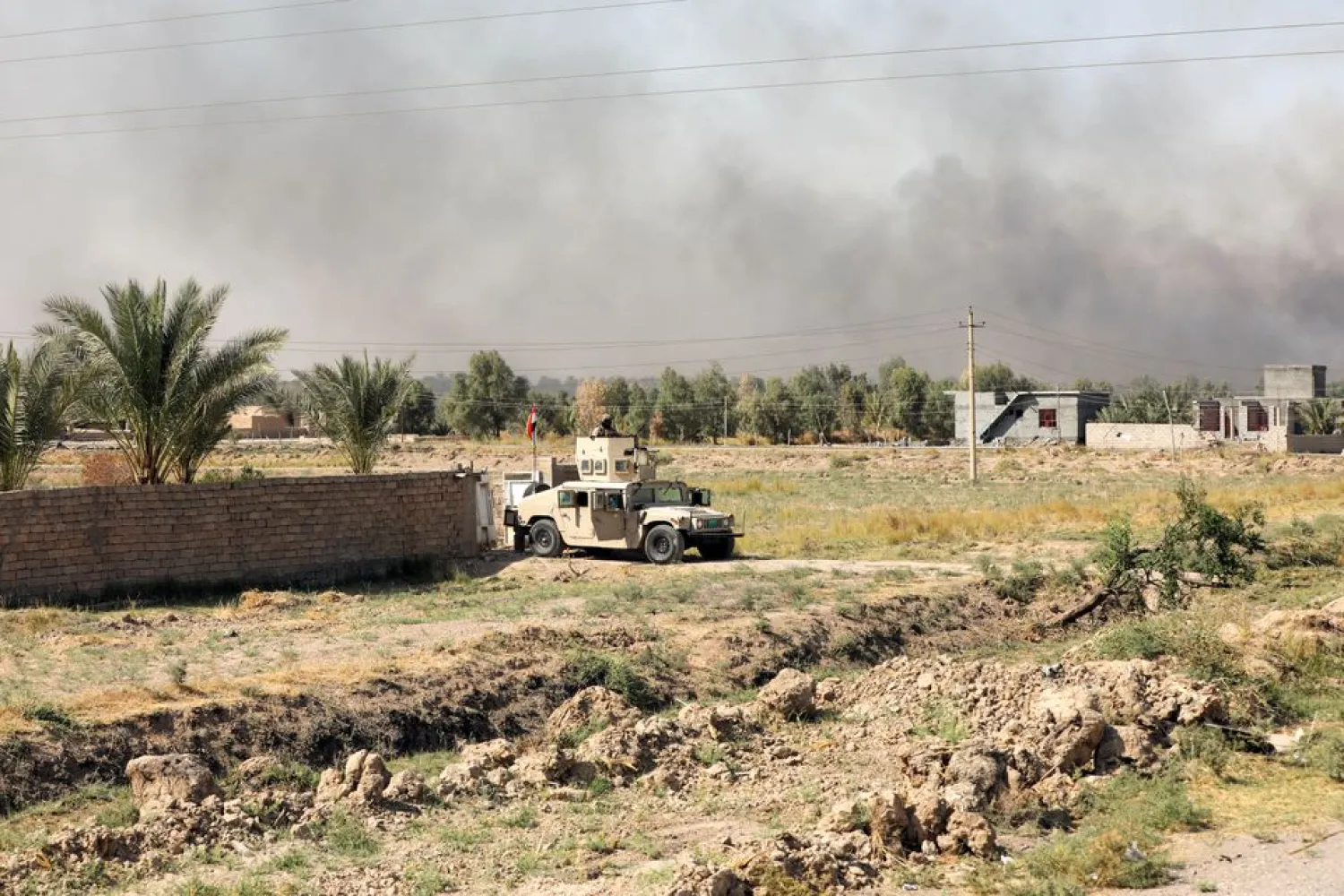Political and popular reactions continued to pour in in wake of the terrorist attack in Iraq’s Diyala last week that killed and injured 30 people, the majority of whom were from the Shiite Bani Tamim tribe. Meanwhile, militias have been forcibly displacing locals from the area in wake of the attack.
The Ministry of Migration and Displaced said some 227 families have fled the Muqdadiya city, while a rights group said on Tuesday that some 480 have fled to safety out of fear of reprisals by militias believed to be linked to some Popular Mobilization Forces (PMF) factions.
Sadrist movement leader, cleric Moqtada al-Sadr warned of impending “sectarian strife” in Diyala.
In a tweet, he urged security forces to work hard to protect the borders and deploy rapidly to curb the dangers.
Commenting on the Diyala unrest, former MP Dhafer al-Ani said: “The state has transformed into nothing more than a humanitarian organization. Instead of preventing killings and displacement among the people of Muqdadiya, we see it offering free burial shrouds to the martyrs and shelter and a million dinars to the displaced.”
The Ministry of Migration and Displaced has said on Sunday it was allocating a million dinars, or 650 dollars, to each displaced family.
Security forces have notably not commented on the developments in Diyala.
The Emtidad movement, which is affiliated with the October 2019 anti-government protests, condemned the unrest.
The movement, which won nine seats in the recent parliamentary elections, addressed the Iraqi people and residents of Diyala, saying it rejects the exploitation of innocent civilians “in settling political scores and forcing demographic changes that only serve sectarian powers and militias that thrive on chaos.”
It urged the security agencies to address the situation and prevent displacement in all its forms.
The Afada rights monitor painted a bleak and tragic picture in Diyala.
In a report, it said: “Armed forces are once against using sectarian violence against the local population in several villages in the northeastern regions of the province.”
“All this is taking place before the eyes of the government authorities in Baghdad and regular security forces, in one of the latest chapters of systematic violence in the province,” it added.
It said militants associated with the Badr organization, led by Hadi al-Ameri, and another operating under the PMF have carried out field executions against unarmed civilians. They have also burned down and destroyed homes in the Nahr al-Imam village.
It reported that as of Tuesday, 12 Iraqis, including two children, were directly killed in Nahr al-Imam. All testimonies point to more victims that have also been executed by the militias that stormed the village late on October 26.
Witnesses, security forces and families of the victims told the monitor that the developments are part of a sectarian campaign carried out by factions, which are protected by the government and state, with the purpose of creating demographic change.
Journalist Ahmed Abdulsada, who is affiliated with the militias and armed factions, had openly called on Friday for the “sectarian purification” of some Sunni regions of Diyala, such as Shawk al-Rim, Nahr al-Imam and al-Harounia “after they have become ISIS colonies and a base for it to launch attacks against Shiites in Muqdadiya and other regions.”
Abdulsada’s comments were vehemently condemned by Iraqis.









